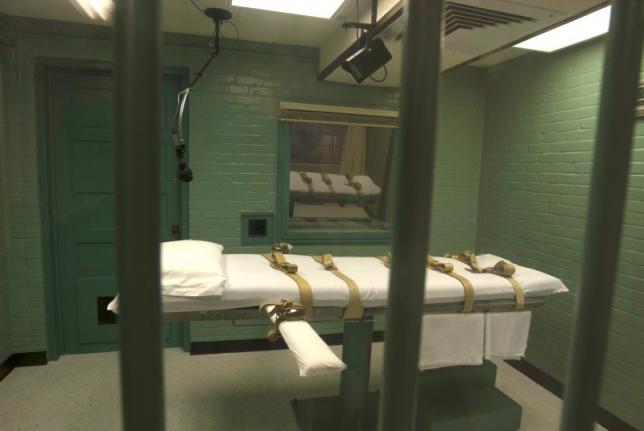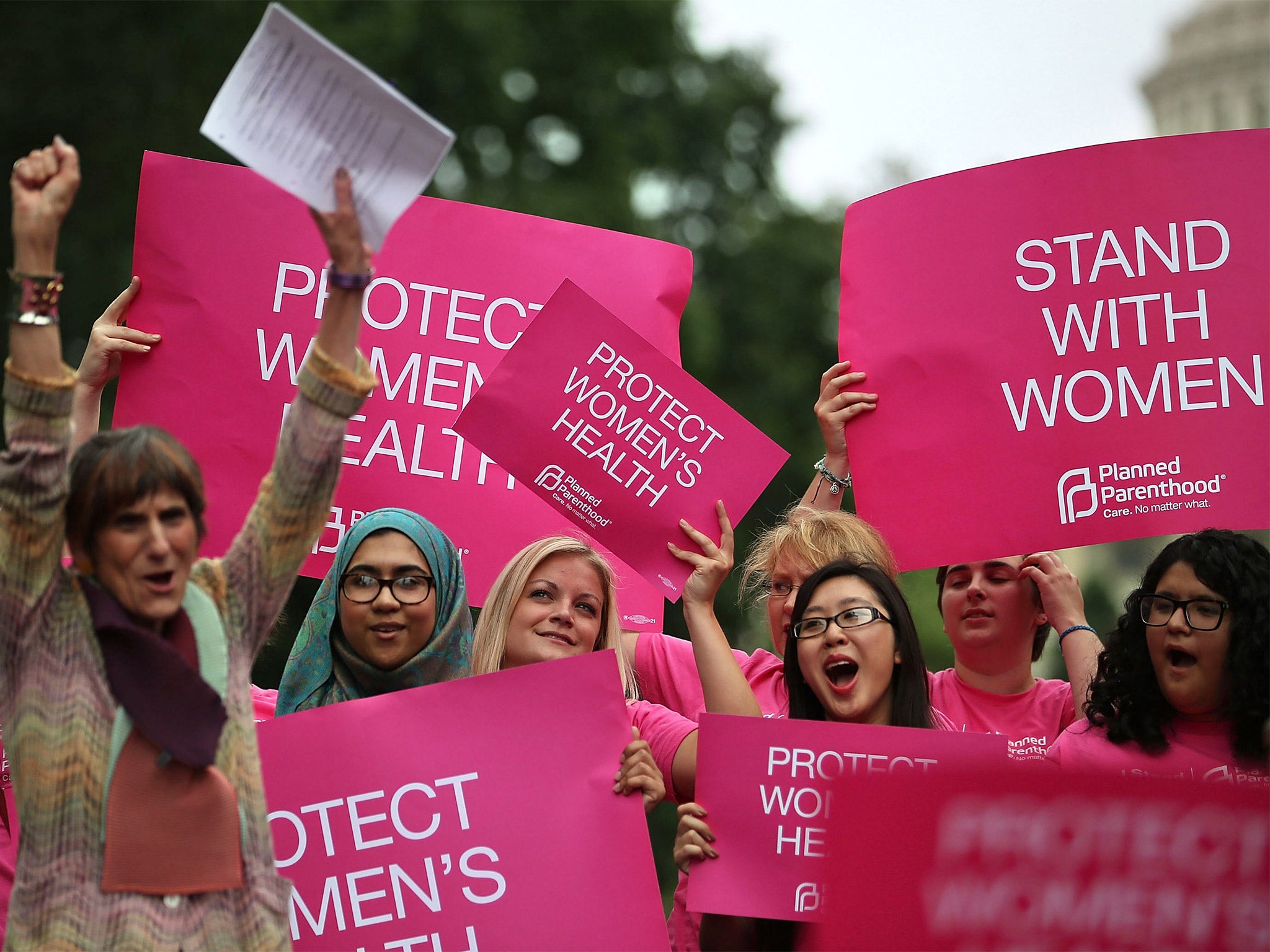Ted Cruz: Who is the Republican US Senator who defeated Donald Trump in Iowa and what are his policies?
The Republican centre has taken a strong stance against same-sex marriage, abortion and gun control

Your support helps us to tell the story
From reproductive rights to climate change to Big Tech, The Independent is on the ground when the story is developing. Whether it's investigating the financials of Elon Musk's pro-Trump PAC or producing our latest documentary, 'The A Word', which shines a light on the American women fighting for reproductive rights, we know how important it is to parse out the facts from the messaging.
At such a critical moment in US history, we need reporters on the ground. Your donation allows us to keep sending journalists to speak to both sides of the story.
The Independent is trusted by Americans across the entire political spectrum. And unlike many other quality news outlets, we choose not to lock Americans out of our reporting and analysis with paywalls. We believe quality journalism should be available to everyone, paid for by those who can afford it.
Your support makes all the difference.Ted Cruz, a US Senator, has stepped up the race for the Republican Presidential nomination by defeating Donald Trump in Iowa.
His victory in the state has created excitement – and relief – over a possible three-way competition with Senator Marco Rubio.
Mr Cruz took 28 per cent of the vote – four points ahead of Mr Trump and five ahead of Mr Rubio in a result seen as denting the billionaire’s controversial campaign.
Who is Ted Cruz?
He was born in Calgary, Canada, in 1970 but grew up in Texas with his mother, computer programmer Eleanor Cruz, and father Ted Cruz, a Cuban refugee who fled to the US after being imprisoned and tortured in his home country.
He attended the University of Texas and later started a seismic-data processing firm for oil drilling. The elder Mr Cruz is now a Christian pastor in Dallas.
His son attended two private high schools before studying Public Policy at Princeton University, where he won awards for debating before going to study law at Harvard.
Mr Cruz then embarked on a legal career including representing the National Rifle Association in its efforts to impeach President Bill Clinton in the 1990s.
He is married with two daughters.

What it his career history?
He briefly entered politics in 1999 as a domestic policy advisor in George W Bush’s Presidential campaign and aided his legal cases during vote recounts in Florida.
After President Bush took Office, he served as an associate deputy attorney general and was then appointed as Solicitor General of Texas in 2003.
He continued his support for the gun lobby with moves to declare a ban on handguns in Washington DC as unconstitutional and fought to keep the words “under God” in the pledge of allegiance, as well as keeping the Ten Commandments monument at the Texas State Capitol.
Mr Cruz has stated that he felt his biggest case was Medellín v. Texas, which ruled that international treaties are not binding in domestic US law.
H then returned to private practice in 2008, representing companies including Pfizer, B Braun Medical Inc and Toyota.

What has Mr Cruz done in politics?
He was elected as a Republican Texas senator in 2012, being supported by Sarah Palin and other prominent right-wing politicians.
During his time in the post, he has sponsored 25 bills, including one attempting to prohibit the use of drones to kill US citizens, to crackdown on criminals buying firearms illegally, to expand offshore oil drilling and fracking, as well as stopping the regulation of greenhouse gas emissions.
He has made several inflammatory comments about Barack Obama, including calling the President’s administration “the world’s leading financier of radical Islamic terrorism” following the nuclear deal with Iran. Mr Obama called the allegation “outrageous”.
Mr Cruz has previously accused the President of being “openly desirous to destroy the Constitution and this Republic”, as well as denouncing planned immigration reforms.
His relationship with fellow Republicans has also been strained, particularly after he called them “squishes” on gun control at a Tea Party rally, and has defended his lack of allies by dismissing “the Washington cartel”.
He announced his intention to run for this year’s Presidential elections in 2013.

Where does he stand on gun control and the death penalty?
“Second Amendment Rights” are championed as one of Mr Cruz’s main issues on his campaign website.
It claims America’s current gun laws make its citizens more “safe, secure and free”.
“When citizens cease to have the right to defend ourselves, we cease to be free,” the website says. “And now, more than ever, as radical Islamic terrorists seek to attack Americans on our own soil, Americans’ right to protect our families and communities is all the more critical to our safety and freedom.”
Citing legal cases where Mr Cruz has overturned firearms bans and loosened restrictions, he has vowed to continue the stance if elected as President.
“You don’t reduce violent crime by taking away the right of law-abiding citizens to defend themselves and their families,” he said.
Mr Cruz has stated a commitment to preventing any changes to the Constitution and strongly supports the death penalty.
He has championed his role in a Supreme Court case allowing Texas to ignore an International Court of Justice order to review the sentences of dozens of Mexican nationals on death row.

What about abortion and same-sex marriage?
Mr Cruz styles himself as “strongly pro-life” and has claimed to want to reduce legal abortions to cases where pregnancy endangers the mother’s life.
He defeated a challenge to Texas laws that prohibit abortion providers from receiving state funding and called life “a precious gift from God” while explaining his stance.
Mr Cruz pledges on his website to “investigate Planned Parenthood on day one” if elected President, without specifying why.
The Senator has also taken a strong stand against same-sex marriage and civil partnerships, writing: “Marriage is a sacrament between one man and one woman, it has strengthened societies for millennia, and we must uphold the truth of marriage.”

And the environment?
Mr Cruz denies climate change, claiming that “scientific evidence doesn’t support global warming” and has supported controversial oil pipelines, drilling and fracking plans.
He has also opposed legislation to regulate greenhouse gases and encourage the use of renewable energy by framing it as a threat to American jobs and damaging to the economy.
“We need an all-of-the-above energy approach that embraces the bountiful resources in this land — from oil to natural gas to ethanol,” his website says.
“We must harness our nation’s energy resources and remove federal impediments to energy exploration, development, and trade.”
Elsewhere in economic policies, Mr Cruz has proposed a flat income tax, demanded the appeal of Obamacare, called for a “stable dollar” and opposed the proposed Internet Sales Tax.
What is Mr Cruz’s position on defence?
Calling the US “the nation other countries aspire to be like”, he has not shied away from interventionist wars or making “enemies”.
A list of priorities on his website is in the following order: “Be a shining beacon”, “exert world leadership”, “rebuild our military”, “defeat Isis”, “protect the homeland”, “rip up the Iran deal”.
He has vowed to repeal the Iran deal, increase spending on the armed forces, stop withdrawal from Afghanistan and hinted that President Obama and his predecessor are responsible for the emergence of Isis and other terrorist groups.
Mr Cruz has tied terrorism in with immigration legislation and a legal move to deny US citizenship and the right of return to extremists who fight abroad.
“Isis seeks to destroy our very way of life,” his website says. “We must defeat them. That starts by calling the enemy by its name – radical Islamic terrorism – and securing the border. Border security is national security.”
He appears to be referring to the Mexican border, which he wants to “secure once and for all”, as well as “reforming legal immigration to protect American workers”.

Anything else?
Mr Cruz has highlighted “standing with Israel” as one of his key policy issues, saying its alliance with the US is a “strategic bedrock” for defence.
He claims that “on day one” as President he would make the US recognise Jerusalem as the “undivided capital of Israel”, effectively abolishing East Jerusalem, which is the part of the Occupied Palestinian Territories, which also claim the whole city as its capital.
Mr Cruz also said he would change policy towards the Palestinian Authority accusing it of “inciting hatred against Jews”.
He also claims the United Nations has an anti-Israel bias and pledged to withdraw public funding from any American university with a boycott Israel movement.
Claiming to defend “religious liberty” Mr Cruz cited the pilgrim fathers as evidence that American rights do not come from government but from God.
He appears to refer to “religious liberty” only within Christianity, talking about “our faith”.
Join our commenting forum
Join thought-provoking conversations, follow other Independent readers and see their replies
Comments